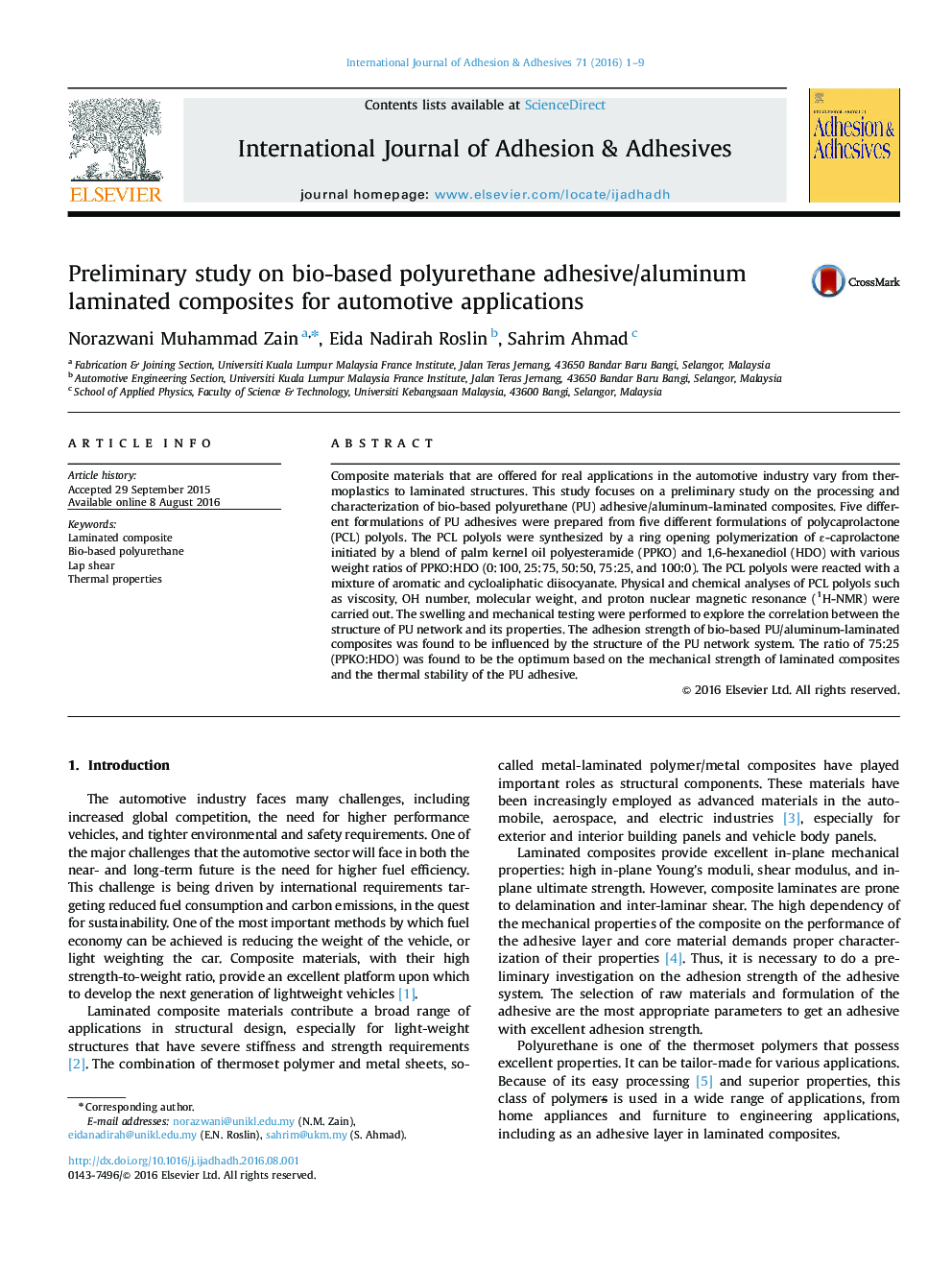| Article ID | Journal | Published Year | Pages | File Type |
|---|---|---|---|---|
| 776527 | International Journal of Adhesion and Adhesives | 2016 | 9 Pages |
Composite materials that are offered for real applications in the automotive industry vary from thermoplastics to laminated structures. This study focuses on a preliminary study on the processing and characterization of bio-based polyurethane (PU) adhesive/aluminum-laminated composites. Five different formulations of PU adhesives were prepared from five different formulations of polycaprolactone (PCL) polyols. The PCL polyols were synthesized by a ring opening polymerization of ɛ-caprolactone initiated by a blend of palm kernel oil polyesteramide (PPKO) and 1,6-hexanediol (HDO) with various weight ratios of PPKO:HDO (0:100, 25:75, 50:50, 75:25, and 100:0). The PCL polyols were reacted with a mixture of aromatic and cycloaliphatic diisocyanate. Physical and chemical analyses of PCL polyols such as viscosity, OH number, molecular weight, and proton nuclear magnetic resonance (1H-NMR) were carried out. The swelling and mechanical testing were performed to explore the correlation between the structure of PU network and its properties. The adhesion strength of bio-based PU/aluminum-laminated composites was found to be influenced by the structure of the PU network system. The ratio of 75:25 (PPKO:HDO) was found to be the optimum based on the mechanical strength of laminated composites and the thermal stability of the PU adhesive.
